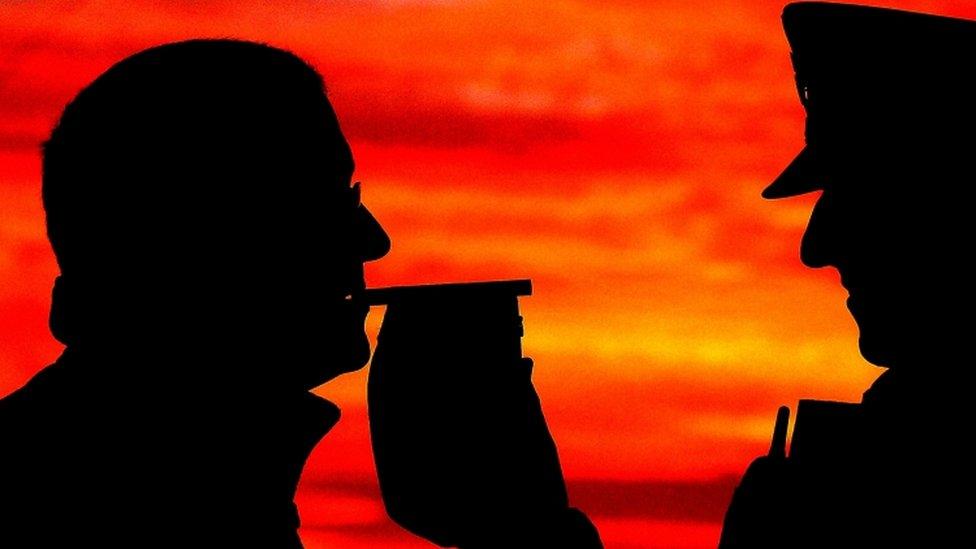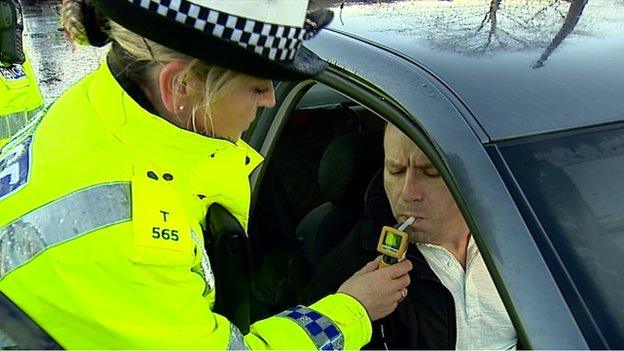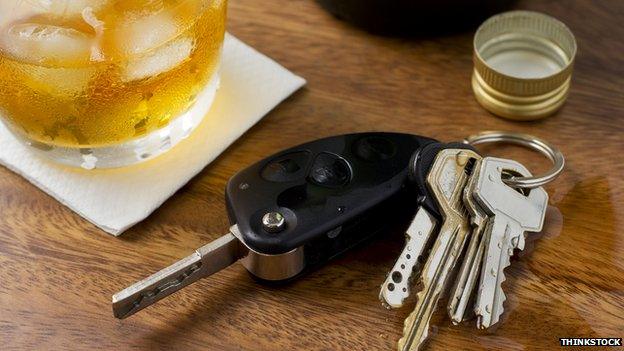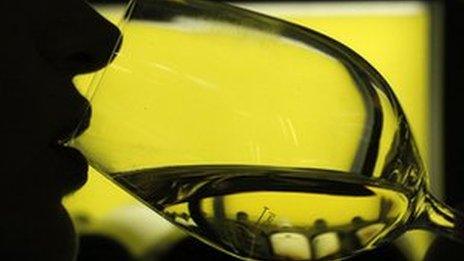One in five risk morning-after drink-driving, says AA
- Published

One in five motorists has driven the morning after a night of drinking, despite knowing they could be over the drink-drive limit, a survey suggests.
A poll of almost 20,000 motorists, commissioned by the AA, found 29% of 25 to 34-year-olds admitted to drinking and driving the following morning.
AA president Edmund King said that it is "relatively easy" to be over the limit the next morning.
"If you have got any doubt it is probably unsafe to drive," he said.
The Scottish Government reduced the alcohol limit for drivers from 80mg to 50mg per 100ml of blood in December 2014, but the legal level in England and Wales remains at 80mg.
Warning
Mr King told the BBC: "I think people have kind of got the message when they go out in the evening so they'll book a taxi or they'll have a designated driver and they'll be responsible.
"But once they get home, they go to bed, they have some sleep, and then they kind of think well I'm OK, it's the next day.
"So they're not equating the next day with what they've actually drunk and the problem is if you really have had a lot to drink, your body can only really break down one unit of alcohol per hour... it is relatively easy to be over the limit the next day."
He said 20% of those prosecuted for drink-driving are caught by police between 06:00 and 12:00, so more awareness is needed.
"If you know you've got to be up the next morning and driving then plan for it - don't drink so much the night before," he said.
According to the most recent Department for Transport figures, external, an estimated 240 people were killed in drink-driving related collisions across Great Britain in 2014. This number has fallen dramatically since 1979, when there were 1,640 deaths.
The first provisional estimates for 2015 suggest there were between 200 and 290 deaths in drink-drive accidents.
- Published5 December 2014

- Published24 October 2014

- Published28 November 2013
